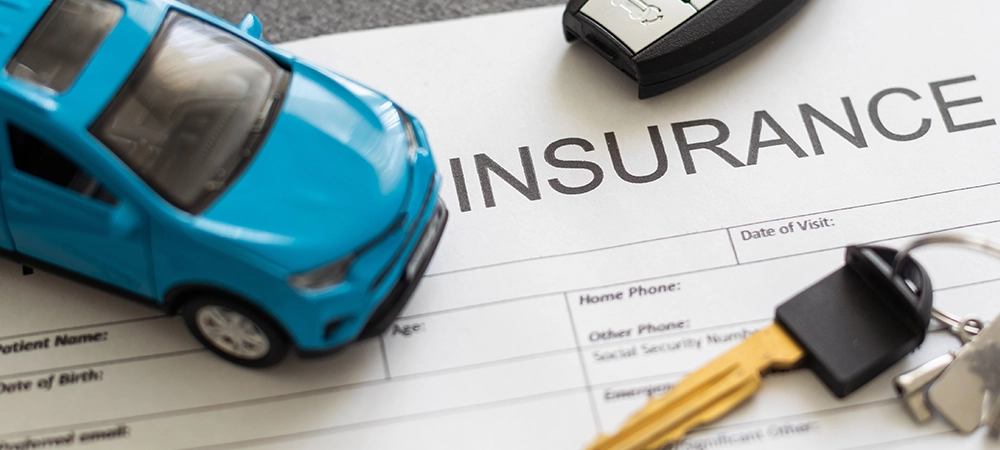Any time you rent a car in Canada, you’re responsible for any damages that happen to it or damages to other people’s property in at-fault accidents. To avoid being on the hook for thousands of dollars, it’s a good idea to have adequate insurance coverage. If you rent a car, you may be required to purchase insurance for it, but what happens if you have your own personal insurance? If you’re wondering does my insurance cover rental cars as well? Read on to learn the answer to this question and much more.
Car Rental Insurance in Canada
Car insurance for personal vehicles is mandatory in Canada, and personal insurance policies typically cover rental cars as well. However, there are a few exceptions when this might not apply.
For example, your insurer might exclude car rental coverage from their basic liability policy but include them in additional coverage, which you must purchase separately.
If you don’t, you won’t have coverage for rental cars. Other insurance companies, while excluding rental coverage from the basic policy, can make exemptions if you need a rental car because you were in an accident which wasn’t your fault.
Using Your Existing Insurance as a Canadian Citizen
As mentioned above, drivers in Canada may be able to rely on their existing insurance for rental car coverage. This applies to the vehicle, travel, and credit card insurance, but only for Canadian residents and subject to the insurer’s policy.
This way, if you’re already covered by personal insurance in Canada, you won’t need to purchase additional insurance if you travel to another province without your vehicle and wish to rent a car there. Make sure you call your insurance provider to verify whether you have coverage for car rental before renting a car.
It’s also a good idea to make an inquiry at the rental car company you are planning to use to see what type of coverage they require and whether they can transfer coverage from your insurer. You may also want to clarify with your insurer and your rental company whether your personal belongings inside the rental car will be covered by either policy.
If you don’t have a currently valid insurance policy when renting a car, you’ll need to purchase one from the rental car company. This comes with daily fees, which you can avoid by having your own personal insurance up to date and covering car rentals.
When considering your current personal insurance policy, it should have a Collision Damage Waiver, which will save you from paying for a damaged or stolen car. If you have this but want to add more security when renting a car, you still have the option to purchase Personal Accident Insurance to cover the medical expenses of all passengers who get injured in the rental vehicle.
You can also buy Supplemental Liability Insurance for your own protection in case of serious body injury or death, or Personal Effects Coverage for your personal property in the rental car.
Using Your Existing Insurance as a Non-Resident
Visitors to Canada benefit the most from their travel insurance when covering rental cars, as long as it includes a Collision Damage Waiver. However, depending on your country of origin, you may also be able to use your existing car insurance.
For example, U.S. citizens can use their own car insurance when renting a car in Canada, although it’s best to ask your insurance provider to make sure this applies in the province you’re planning to visit. Car rental agencies in the U.S. can also facilitate the transfer of insurance by providing you with the Yellow Card insurance ID required by the Canadian authorities.
If you only have basic coverage in the U.S. and want to rent the car in Canada, it’s a good idea to purchase additional coverage for any damages to the rental vehicle or injury-related medical expenses.
As a U.S. citizen, your car rental might also be covered if you use a credit card that offers rental insurance. This applies to Canadian citizens and travellers from all over the world, as most major credit card companies have the option for rental car insurance among all the other insurance policies they offer.
The Exceptions for Car Insurance Coverage in Canada
U.S. citizens who stay longer than 6 months, and visitors from countries that can’t use their personal car insurance in Canada will need to purchase a full rental car insurance policy when renting a car anywhere in Canada.
The only exception is if you secure a visitor visa. If you don’t and move to Canada permanently, you’ll need Canadian insurance for all your insurance needs, including car rentals.
Final Thoughts
If you’re a resident of Canada, there is a good chance that your insurance will cover rental cars. The same applies to visitors from the U.S. with valid personal insurance. Check with your insurance company to see whether you have this coverage and what will be covered during your car rental.
However, if you’re visiting from a country from where you can’t transfer insurance, you’ll need to purchase rental car insurance. If you’re looking for auto insurance or are looking for further advice, feel free to give Buckler Insurance a call today and we’ll be more than happy to assist you.






